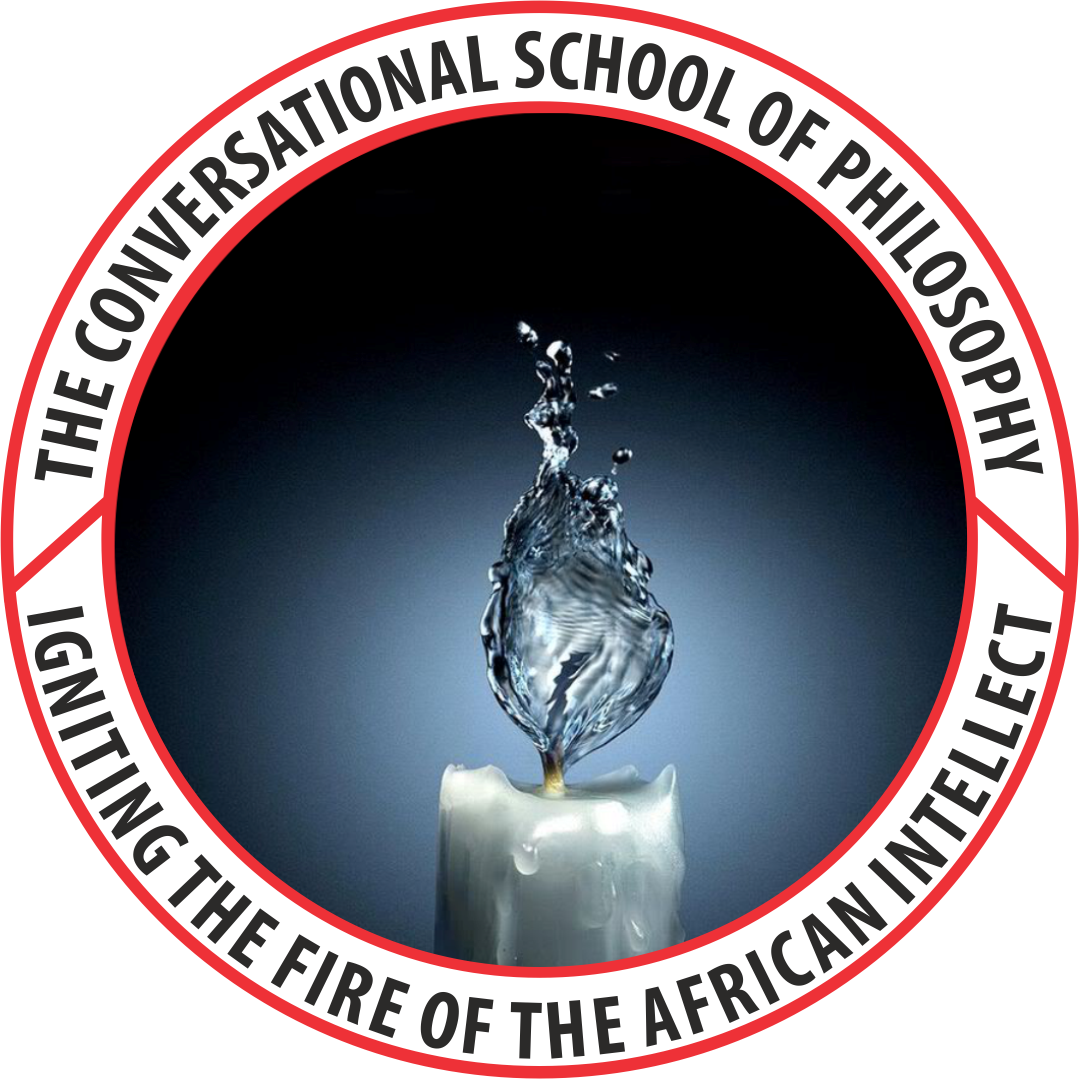Ada Agada csp
Forum Scientiarum, Eberhard-Karls-Universität Tübingen, Germany
ada.agada@fsci.uni-tuebingen.de
The Conversational School of Philosophy, Calabar, Nigeria
10/12/2019
It is easy to forget that African philosophy is still very much at the stage of idea-ferment and system-building. While Western philosophy has passed this stage and is now very comfortable with analysis at the expense of synthesis, modern African philosophy is at the stage Western philosophy found itself in the sixteenth to nineteenth century which marked, in my opinion, the most productive centuries of Western philosophical thinking. That was the age of great syntheses, beginning with Benedict Spinoza and ending with German idealists like Arthur Schopenhauer.
It was an aberration that the march of modern African philosophy was hampered early by undue focus on metaphilosophy which saw the emergence of the great universalism-particularism divide. I have always believed that without the publication of Paulin Hountondji’s influential work African Philosophy: Myth and Reality and the subsequent premature turn to analysis, African philosophy would have progressed faster from ethnophilosophy (which was the first step) to the system-building phase and eventually the analytic phase. As the history of African philosophy reveals, the radical critique of ethnophilosophy delayed the arrival of the system-building phase. Intellectual energy that should have gone into the construction of African philosophical systems by individual thinkers was instead dissipated on arguments about the existence of African philosophy, the perceived primitivity of ethnophilosophy, etc. The metaphilosophical engagement reflected a desire by professional philosophers to find a place for analysis in line with the fashion in Western philosophy even when there was very little substantive philosophy to analyse.
But analysis cannot predate synthesis. Should it forcefully overtake synthesis, we will have an aberration, which was what we had in the beginning. Jennifer Vest has used the term ‘perverse dialogue’ to characterise the aberration in her article “Perverse and Necessary Dialogue in African Philosophy.” Kwasi Wiredu, Kwame Gyekye, Innocent Onyewuenyi, Henry Odera Oruka, Segun Gbadegesin and others clearly realised that the path opened up by Hountondji was leading nowhere. Hence, they set out to enhance the dignity of descriptive ethnophilosophy by ushering in a new kind of engagement: academic ethnophilosophy. Academic ethnophilosophy marked the beginning of the system-building project.
Given the unmistakable achievements of the pioneer philosophers and the tendency to focus disproportionate attention on them – as the hundreds of articles written on Wiredu alone will easily reveal – one will think that the system-building phase of African philosophy has ended and it is time for us to concentrate on analysis. This is not the case because the academic ethnophilosophers have not radically transcended ethnophilosophy, which is the ultimate goal of system-building. The transcending of ethnophilosophy is the invocation of ethnophilosophy as an inspiration for a systematic kind of thinking that surpasses ethnophilosophy by completely leaving the orbit of ethnic worldviews and projecting universalist aspirations.
Since the publication of Mogobe B. Ramose’s intriguing book African Philosophy Through Ubuntu, a number of philosophers have taken up the challenge of building elaborate systems of thought which can at once lay claims to both Africanness and universalism. The emerging systems inhabit thought-structures like complementarism, consolationism, relationalism, and conversationalism. This is a development worth celebrating. I see more system-builders emerging in the near and distant future to sustain and radicalise the projects of contemporary system-builders like Innocent I. Asouzu, Ramose, Thaddeus Metz, Jonathan O. Chimakonam, and Ada Agada, to mention but a few names that readily come to mind. As I suggested earlier, African philosophy is evolving historically and we are going to have our own René Descartes, Spinoza, Wilhelm Leibniz, Immanuel Kant, John Locke, etc. When posterity will look back a hundred years from now, two hundred years, perhaps even a much shorter period, it will lump L.S. Senghor, Wiredu, Ramose, Asouzu, Metz, Chimakonam, and the near-future stars as founding fathers of African philosophy.
The time gap separating Senghor from Chimakonam is negligible. Senghor was active as an African thinker in the 1940s and 1950s. A thinker like Chimakonam is still active in 2019. The time gap is just 70-80 years. The point I want to make is that from the perspective of posterity all thinkers and scholars active in the field of African philosophy in the 20th and the early 21st century will be grouped together into a single generation given that African philosophy’s uncontroversial history began in the 20th century. They will all be seen as pioneers and their works will be assessed without the kind of generational bias that prevails today. While the scholars will be acknowledged as having contributed to the general discourse, the thinkers, in particular, will be recognised as the iconic figures who defined African philosophical thinking in the beginning.
The possibility, nay certainty, sketched above, to me, seems like a powerful incentive to work very hard today in the face of non-recognition of system-building labour. It seems to me too that those philosophers embarking on system-building will be the thinkers most remembered by posterity. I can hear the eternal cynic sneering and muttering to himself that it does not matter what posterity thinks, that it is enough that one is celebrated in one’s lifetime and enjoys the fame and/or wealth that comes with recognition within a lifetime. After all, death ends all active sensations and thinking.
The pessimistic and cynical perspective is no doubt valid. But I persist in my stubborn hope and ask: is it not true that our lives are extended genetically and memorially in the lives of our children? If not children, then at least relatives who share family genetic resources and possess the capacity to remember and represent the past in the present? Right there! If our lives continue in the lives of our children and relatives – our posterity – and if our labours which are ignored today are remembered tomorrow by posterity, our descendents will surely rejoice. In their rejoicing we ourselves, though long gone, may yet rejoice in some mystical way. The story of Spinoza is a lesson. Not honoured adequately in his lifetime, posterity rehabilitated him and honoured him as one of the iconic thinkers of the world.
African philosophers should embrace system-building now more than ever. We cannot continue to argue over unimportant matters. Trifling metaphilosophical engagement cannot for long mask the lacuna in African philosophy, the empty space which systematic thinking should have always filled. Metaphilosophy itself is a desirable engagement, but it can only be meaningful when there is a substantial body of substantive philosophy. Mere intellectual talk-shops cannot constitute a history of thought. If ethnophilosophy is going to be relegated to the background, as it ultimately should, African thought-systems in the various branches of philosophy should come into the foreground and prepare the way for the kind of analysis that dominates contemporary Western philosophy. Attempting a leap from the starting point that marks the beginning of the history of African philosophy to the era of intense analysis without the consummation of the age of synthesis is like trying to ‘eat’ and ‘have’ one’s cake all at once. But this attempt at evading the natural sequence of the birth and growth of a philosophy tradition cannot succeed, which is why Hountondji looms so large in African philosophy as a critic of ethnophilosophy which sought to occupy the great lacuna in African philosophy. From West Africa to South Africa and from Central Africa to East Africa, established, emergent, and upcoming African philosophers must rise to the most urgent challenge they face as makers of a thought-tradition: the challenge of system-building.


